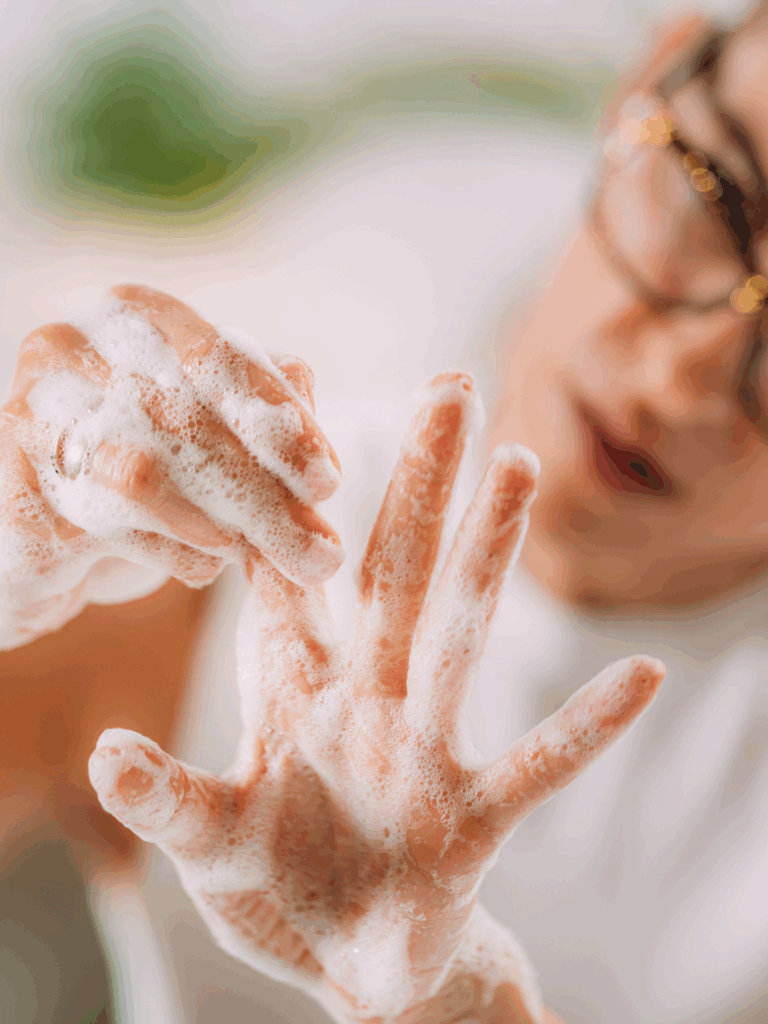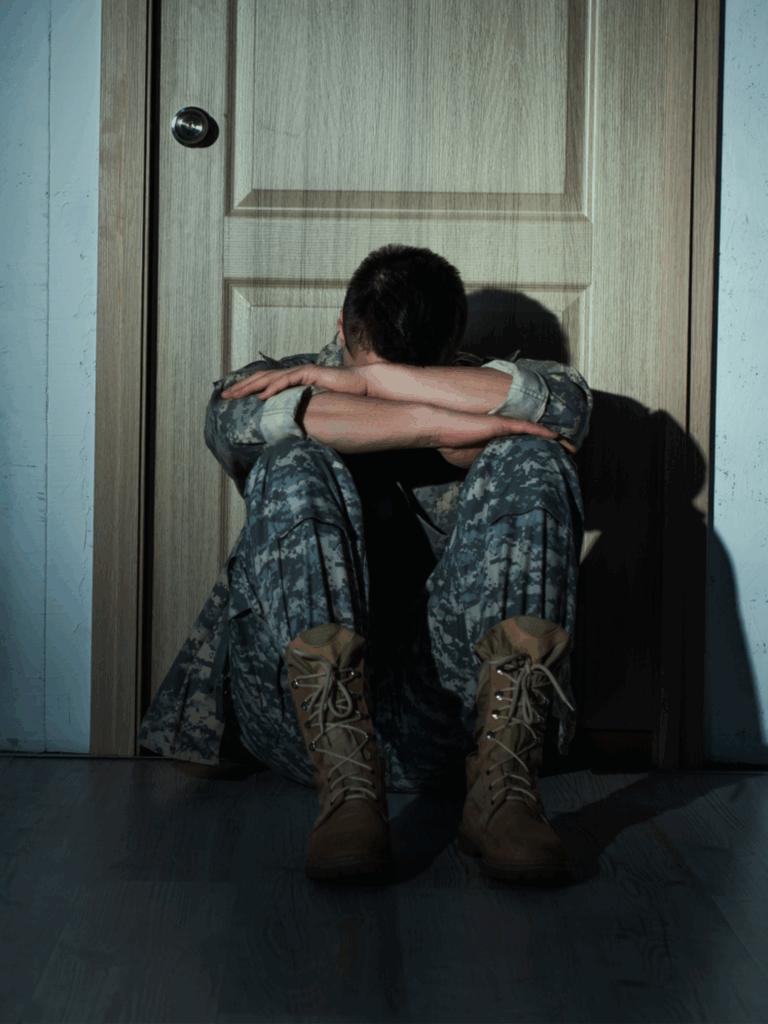Mental Health Treatment
Mental Health Conditions We Can Help Treat
Anxiety Disorder
If you or a loved one is overwhelmed by fear, panic attacks, or constant anxiety, we can help guide them into inpatient care that offers structure, clinical support, and relief.
Bipolar Disorder
For individuals experiencing manic highs and depressive crashes, inpatient treatment can provide the medical stabilization and monitoring they need to get back on track.
Depression Disorder
Losing hope, withdrawing, or expressing suicidal thoughts, we can help you find inpatient care that offers round-the-clock support fit specifically for you.
Borderline Personality Disorder
When someone is struggling with emotional regulation or impulsive behavior, specialized programs using DBT and other therapies can help them regain stability and safety.
Obsessive-Compulsive Disorder
OCD can be incredibly disruptive to daily life. We help families find inpatient programs that provide specialized therapy to break the cycle and regain control.
Trauma and PTSD
Whether it’s from abuse, violence, or other traumatic experiences, we can help you find a safe & therapeutic space for individuals to process and begin healing.
Mental Health Conditions We Can Help Treat
Anxiety Disorder
If you or a loved one is overwhelmed by fear, panic attacks, or constant anxiety, we can help guide them into inpatient care that offers structure, clinical support, and relief.
Bipolar Disorder
For individuals experiencing manic highs and depressive crashes, inpatient treatment can provide the medical stabilization and monitoring they need to get back on track.
Depression Disorder
Losing hope, withdrawing, or expressing suicidal thoughts, we can help you find inpatient care that offers round-the-clock support fit specifically for you.
Borderline Personality Disorder
When someone is struggling with emotional regulation or impulsive behavior, specialized programs using DBT and other therapies can help them regain stability and safety.
Obsessive-Compulsive Disorder
OCD can be incredibly disruptive to daily life. We help families find inpatient programs that provide specialized therapy to break the cycle and regain control.
Trauma and PTSD
Whether it’s from abuse, violence, or other traumatic experiences, we can help you find a safe & therapeutic space for individuals to process and begin healing.
What is an Anxiety Disorder?
Anxiety disorders are a group of mental health conditions characterized by excessive fear, worry, or nervousness that doesn’t go away and can worsen over time. These feelings often arise in response to everyday situations, and for those affected, it can feel impossible to manage.
It is estimated that at least 30% of adults experience symptoms of an anxiety disorder at some point in their lives. That’s nearly one-third of all adults! In fact, anxiety disorders are the most common mental health issue in America.
Common Symptoms Of Anxiety Disorder?
The symptoms of anxiety vary from person to person but may include:
- Excessive worry or fear
- Feeling tense, restless, or on edge
- Racing thoughts or difficulty concentrating
- Sleep disturbances (trouble falling or staying asleep)
- Rapid heartbeat or shortness of breath
- Dizziness, sweating, or trembling
- Avoidance of certain places or situations
If you or a loved one are experiencing any of these symptoms, know that help is available. Anxiety disorders are highly treatable, and at Sober Atlas, we are committed to providing compassionate, evidence-based care.

What is an Anxiety Disorder?
Anxiety disorders are a group of mental health conditions characterized by excessive fear, worry, or nervousness that doesn’t go away and can worsen over time. These feelings often arise in response to everyday situations, and for those affected, it can feel impossible to manage.
It is estimated that at least 30% of adults experience symptoms of an anxiety disorder at some point in their lives. That’s nearly one-third of all adults! In fact, anxiety disorders are the most common mental health issue in America.
Common Symptoms Of Anxiety Disorder?
The symptoms of anxiety vary from person to person but may include:
- Excessive worry or fear
- Feeling tense, restless, or on edge
- Racing thoughts or difficulty concentrating
- Sleep disturbances (trouble falling or staying asleep)
- Rapid heartbeat or shortness of breath
- Dizziness, sweating, or trembling
- Avoidance of certain places or situations
If you or a loved one are experiencing any of these symptoms, know that help is available. Anxiety disorders are highly treatable, and at Sober Atlas, we are committed to providing compassionate, evidence-based care.
Start Your Recovery Journey Today
Start Your Recovery Journey Today

What is Bipolar Disorder?
Bipolar disorder, formerly known as manic-depressive illness, is a mental health condition characterized by intense mood swings that range from extreme highs to debilitating lows. These mood episodes can affect energy levels, behavior, and the ability to carry out everyday activities.
Bipolar disorder affects approximately 2.8% of the U.S. adult population in any given year, according to the National Institute of Mental Health (NIMH). This percentage translates to around 7 million adults. Bipolar disorder can affect people of all ages, but it typically emerges in the late teens or early adulthood.
Common Symptoms Of Bipolar Disorder?
Bipolar disorder symptoms vary depending on the type and the phase (manic or depressive), but common signs include:
Manic or Hypomanic Episode Symptoms:
- Increased energy, activity, or agitation
- Unusually upbeat, jumpy, or wired mood
- Inflated self-esteem or grandiosity
- Decreased need for sleep
- Racing thoughts or rapid speech
- Impulsivity, engaging in risky behaviors
- Difficulty concentrating
Depressive Episode Symptoms:
- Persistent feelings of sadness or hopelessness
- Fatigue or loss of energy
- Difficulty sleeping or sleeping too much
- Loss of interest in activities once enjoyed
- Feelings of worthlessness or guilt
- Difficulty concentrating or making decisions
- Thoughts of death or suicide
These mood episodes can last days, weeks, or even months, and they can significantly disrupt relationships, work, and day-to-day functioning. The good news is that bipolar disorder is treatable, and at Sober Atlas, we help you find the support you need to manage your symptoms and lead a fulfilling life.
What is Bipolar Disorder?
Bipolar disorder, formerly known as manic-depressive illness, is a mental health condition characterized by intense mood swings that range from extreme highs to debilitating lows. These mood episodes can affect energy levels, behavior, and the ability to carry out everyday activities.
Bipolar disorder affects approximately 2.8% of the U.S. adult population in any given year, according to the National Institute of Mental Health (NIMH). This percentage translates to around 7 million adults. Bipolar disorder can affect people of all ages, but it typically emerges in the late teens or early adulthood.
Common Symptoms Of Bipolar Disorder?
Bipolar disorder symptoms vary depending on the type and the phase (manic or depressive), but common signs include:
Manic or Hypomanic Episode Symptoms:
- Increased energy, activity, or agitation
- Unusually upbeat, jumpy, or wired mood
- Inflated self-esteem or grandiosity
- Decreased need for sleep
- Racing thoughts or rapid speech
- Impulsivity, engaging in risky behaviors
- Difficulty concentrating
Depressive Episode Symptoms:
- Persistent feelings of sadness or hopelessness
- Fatigue or loss of energy
- Difficulty sleeping or sleeping too much
- Loss of interest in activities once enjoyed
- Feelings of worthlessness or guilt
- Difficulty concentrating or making decisions
- Thoughts of death or suicide
These mood episodes can last days, weeks, or even months, and they can significantly disrupt relationships, work, and day-to-day functioning. The good news is that bipolar disorder is treatable, and at Sober Atlas, we help you find the support you need to manage your symptoms and lead a fulfilling life.
Start Your Recovery Journey Today
Start Your Recovery Journey Today
What is Depression Disorder?
Depression, also known as Major Depressive Disorder (MDD), is a mood disorder characterized by persistent feelings of sadness, hopelessness, and a lack of interest or pleasure in activities once enjoyed. It can significantly impact daily life, making it difficult to carry out even the simplest tasks. Depression is not a sign of weakness, and it’s not something that someone can “snap out of.” It’s a medical condition that requires treatment, and recovery is possible with the right care.
Approximately 20% of adults will experience depression at some point in their lives, according to research. Depression is one of the most common mental health disorders, for example, about 1 in 5 adults will experience major depressive disorder during their lifetime.
Common Symptoms Of Depression Disorder?
Depression can manifest in many ways, affecting both the mind and body.
- Persistent sadness, emptiness, or hopelessness
- Loss of interest or pleasure in hobbies and activities
- Fatigue or lack of energy
- Difficulty sleeping or sleeping too much
- Changes in appetite or weight (either increase or decrease)
- Difficulty concentrating, thinking, or making decisions
- Feelings of worthlessness or guilt
- Irritability or frustration, even over small matters
- Physical symptoms like headaches or body aches with no clear cause
- Thoughts of death or suicide
If you or someone you know is experiencing these symptoms, it’s important to seek help. Depression is treatable, and at Sober Atlas, we provide compassionate care to support you through the healing process.

What is Depression Disorder?
Depression, also known as Major Depressive Disorder (MDD), is a mood disorder characterized by persistent feelings of sadness, hopelessness, and a lack of interest or pleasure in activities once enjoyed. It can significantly impact daily life, making it difficult to carry out even the simplest tasks. Depression is not a sign of weakness, and it’s not something that someone can “snap out of.” It’s a medical condition that requires treatment, and recovery is possible with the right care.
Approximately 20% of adults will experience depression at some point in their lives, according to research. Depression is one of the most common mental health disorders, for example, about 1 in 5 adults will experience major depressive disorder during their lifetime.
Common Symptoms Of Depression Disorder?
Depression can manifest in many ways, affecting both the mind and body.
- Persistent sadness, emptiness, or hopelessness
- Loss of interest or pleasure in hobbies and activities
- Fatigue or lack of energy
- Difficulty sleeping or sleeping too much
- Changes in appetite or weight (either increase or decrease)
- Difficulty concentrating, thinking, or making decisions
- Feelings of worthlessness or guilt
- Irritability or frustration, even over small matters
- Physical symptoms like headaches or body aches with no clear cause
- Thoughts of death or suicide
If you or someone you know is experiencing these symptoms, it’s important to seek help. Depression is treatable, and at Sober Atlas, we provide compassionate care to support you through the healing process.
Start Your Recovery Journey Today
Start Your Recovery Journey Today

What is Borderline Personality Disorder?
Borderline Personality Disorder is a mental health condition characterized by pervasive instability in moods, self-image, and behavior. These emotional fluctuations can result in turbulent relationships, difficulties with self-identity, and impulsive actions. People with BPD often experience an intense fear of abandonment and may engage in behaviors that push others away, despite their deep need for connection.
Borderline Personality Disorder (BPD) affects approximately 1.4% of the U.S. adult population in a given year, according to estimates from the National Alliance on Mental Illness (NAMI) and the National Institute of Mental Health (NIMH). This translates to around 3.5 million adults in the U.S.
Common Symptoms Of Borderline Personality Disorder?
BPD affects individuals differently, but common symptoms may include:
- Chronic feelings of emptiness
- Difficulty controlling anger or intense emotional reactions
- Rapidly shifting self-image and sense of identity
- Impulsive behaviors that are potentially harmful
- Unstable or intense relationships
- Severe mood swings, including episodes of anxiety, depression, or irritability
- Paranoia or dissociation under stress
While BPD can be overwhelming, it’s important to know that effective treatments are available, and with the right care, it is possible to manage symptoms and lead a balanced, fulfilling life. At Sober Atlas, we are committed to providing compassionate, evidence-based care.
What is Borderline Personality Disorder?
Borderline Personality Disorder is a mental health condition characterized by pervasive instability in moods, self-image, and behavior. These emotional fluctuations can result in turbulent relationships, difficulties with self-identity, and impulsive actions. People with BPD often experience an intense fear of abandonment and may engage in behaviors that push others away, despite their deep need for connection.
Borderline Personality Disorder (BPD) affects approximately 1.4% of the U.S. adult population in a given year, according to estimates from the National Alliance on Mental Illness (NAMI) and the National Institute of Mental Health (NIMH). This translates to around 3.5 million adults in the U.S.
Common Symptoms Of Borderline Personality Disorder?
BPD affects individuals differently, but common symptoms may include:
- Chronic feelings of emptiness
- Difficulty controlling anger or intense emotional reactions
- Rapidly shifting self-image and sense of identity
- Impulsive behaviors that are potentially harmful
- Unstable or intense relationships
- Severe mood swings, including episodes of anxiety, depression, or irritability
- Paranoia or dissociation under stress
While BPD can be overwhelming, it’s important to know that effective treatments are available, and with the right care, it is possible to manage symptoms and lead a balanced, fulfilling life. At Sober Atlas, we are committed to providing compassionate, evidence-based care.
Start Your Recovery Journey Today
Start Your Recovery Journey Today
What is Obsessive-Compulsive Disorder?
Obsessive-Compulsive Disorder (OCD) is a mental health condition characterized by persistent, intrusive thoughts (obsessions) and repetitive behaviors (compulsions). These obsessions and compulsions can consume a person’s time and interfere with daily activities, work, and relationships. While people with OCD may recognize that their thoughts or behaviors are irrational, they often feel powerless to stop them without experiencing severe anxiety.
Obsessive-Compulsive Disorder (OCD) affects approximately 1.2% of adults in the United States in any given year. This equates to roughly 3 million people. OCD can begin in childhood, adolescence, or early adulthood, with the average onset occurring around 19 years of age.
Common Symptoms of Obsessive-Compulsive Disorder?
OCD manifests differently in each individual, but common symptoms may include:
- Fear of contamination or germs, leading to excessive hand-washing or cleaning
- Repeated checking of locks, appliances, or other things to ensure safety
- Unwanted thoughts about harming oneself or others, even though there is no intention to do so
- Obsessive need for symmetry, order, or exactness, leading to behaviors like arranging objects repeatedly
- Intrusive, distressing thoughts related to taboo topics (such as violence, religion, or sexual thoughts)
- Compulsive counting, repeating words, or performing tasks in a specific way to avoid negative outcomes
These symptoms can take up a significant amount of time and disrupt daily functioning. If you or someone you know is experiencing OCD symptoms, know that help is available. OCD is a treatable condition, and at Sober Atlas, we specialize in providing the care needed for effective management and recovery.

What is Obsessive-Compulsive Disorder?
Obsessive-Compulsive Disorder (OCD) is a mental health condition characterized by persistent, intrusive thoughts (obsessions) and repetitive behaviors (compulsions). These obsessions and compulsions can consume a person’s time and interfere with daily activities, work, and relationships. While people with OCD may recognize that their thoughts or behaviors are irrational, they often feel powerless to stop them without experiencing severe anxiety.
Obsessive-Compulsive Disorder (OCD) affects approximately 1.2% of adults in the United States in any given year. This equates to roughly 3 million people. OCD can begin in childhood, adolescence, or early adulthood, with the average onset occurring around 19 years of age.
Common Symptoms of Obsessive-Compulsive Disorder?
OCD manifests differently in each individual, but common symptoms may include:
- Fear of contamination or germs, leading to excessive hand-washing or cleaning
- Repeated checking of locks, appliances, or other things to ensure safety
- Unwanted thoughts about harming oneself or others, even though there is no intention to do so
- Obsessive need for symmetry, order, or exactness, leading to behaviors like arranging objects repeatedly
- Intrusive, distressing thoughts related to taboo topics (such as violence, religion, or sexual thoughts)
- Compulsive counting, repeating words, or performing tasks in a specific way to avoid negative outcomes
These symptoms can take up a significant amount of time and disrupt daily functioning. If you or someone you know is experiencing OCD symptoms, know that help is available. OCD is a treatable condition, and at Sober Atlas, we specialize in providing the care needed for effective management and recovery.
Start Your Recovery Journey Today
Start Your Recovery Journey Today

What Are Trauma Disorders?
Trauma disorders are mental health conditions that arise after experiencing or witnessing a traumatic event. These events can include physical or emotional abuse, accidents, natural disasters, war, or other life-threatening situations. Trauma disorders can lead to ongoing emotional distress, flashbacks, nightmares, and heightened anxiety. The most well-known trauma disorder is Post-Traumatic Stress Disorder (PTSD), but there are several other types of trauma-related conditions as well.
Approximately 6-8% of Americans will experience post-traumatic stress disorder (PTSD) at some point in their lives, which is one of the most common trauma-related disorders. In any given year, around 3.5% of the U.S. population is dealing with PTSD. Additionally, trauma can manifest in various other mental health disorders, such as depression, anxiety, and substance abuse.
Common Symptoms of Trauma Disorders?
While each individual’s response to trauma is unique, common symptoms of trauma disorders include:
- Intrusive thoughts, flashbacks, or nightmares about the traumatic event
- Avoidance of places, people, or activities that trigger memories of the trauma
- Hypervigilance, or constantly feeling on edge or in danger
- Emotional numbness, detachment, or difficulty feeling positive emotions
- Feelings of guilt, shame, or self-blame related to the trauma
- Difficulty concentrating or sleeping
- Irritability, anger, or outbursts of frustration
- Exaggerated startle response, feeling jumpy or easily frightened
Trauma disorders can disrupt daily life, relationships, and overall functioning. If you or a loved one is experiencing these symptoms, know that help is available. With the right treatment, it is possible to heal from trauma and move forward with renewed strength and resilience.
What Are Trauma Disorders?
Trauma disorders are mental health conditions that arise after experiencing or witnessing a traumatic event. These events can include physical or emotional abuse, accidents, natural disasters, war, or other life-threatening situations. Trauma disorders can lead to ongoing emotional distress, flashbacks, nightmares, and heightened anxiety. The most well-known trauma disorder is Post-Traumatic Stress Disorder (PTSD), but there are several other types of trauma-related conditions as well.
Approximately 6-8% of Americans will experience post-traumatic stress disorder (PTSD) at some point in their lives, which is one of the most common trauma-related disorders. In any given year, around 3.5% of the U.S. population is dealing with PTSD. Additionally, trauma can manifest in various other mental health disorders, such as depression, anxiety, and substance abuse.
Common Symptoms of Trauma Disorders?
While each individual’s response to trauma is unique, common symptoms of trauma disorders include:
- Intrusive thoughts, flashbacks, or nightmares about the traumatic event
- Avoidance of places, people, or activities that trigger memories of the trauma
- Hypervigilance, or constantly feeling on edge or in danger
- Emotional numbness, detachment, or difficulty feeling positive emotions
- Feelings of guilt, shame, or self-blame related to the trauma
- Difficulty concentrating or sleeping
- Irritability, anger, or outbursts of frustration
- Exaggerated startle response, feeling jumpy or easily frightened
Trauma disorders can disrupt daily life, relationships, and overall functioning. If you or a loved one is experiencing these symptoms, know that help is available. With the right treatment, it is possible to heal from trauma and move forward with renewed strength and resilience.
Start Your Recovery Journey Today
Start Your Recovery Journey Today

